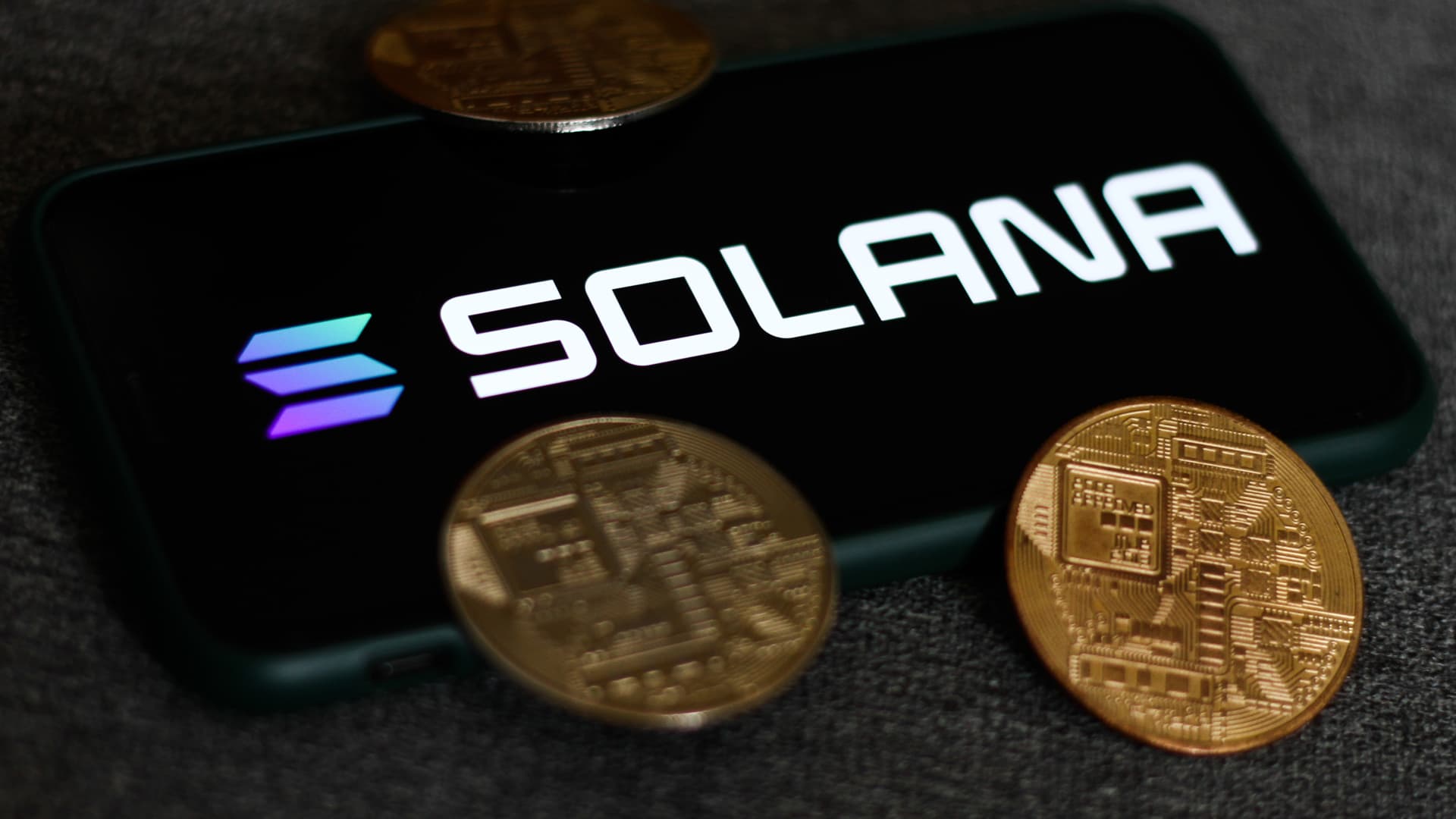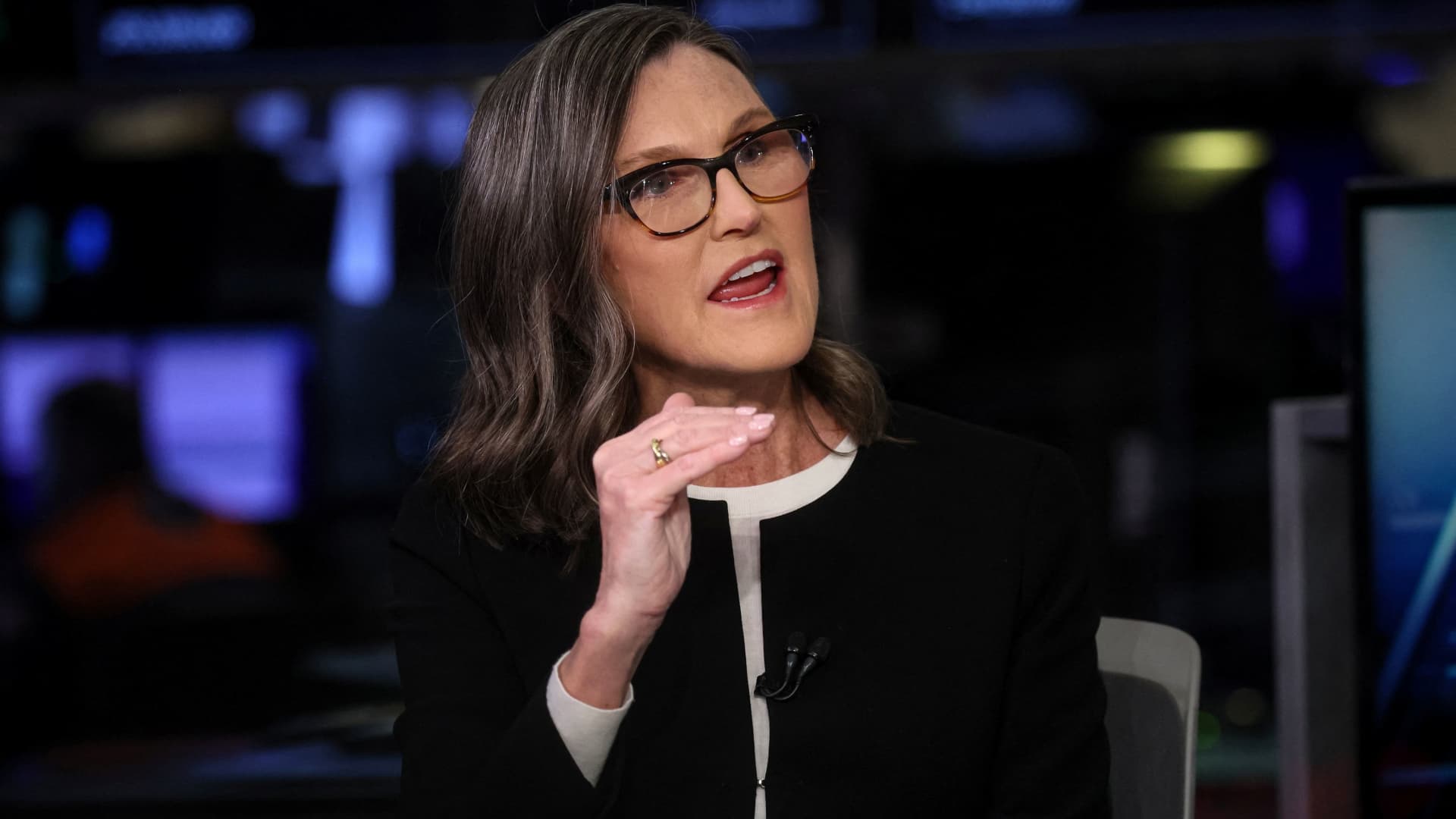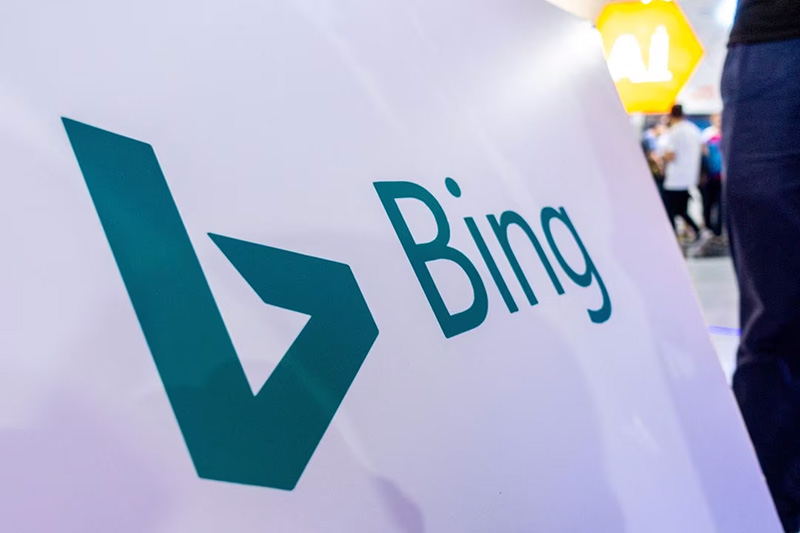Solana jumps on Visa stablecoin announcement

The Solana logo on a phone screen and representation of cryptocurrencies are seen in this photo taken in Krakow, Poland, Aug. 21, 2021.
Jakub Porzycki | NurPhoto | Getty Images
The native token of the Solana blockchain jumped Tuesday after Visa announced it will expand its stablecoin capabilities to the ethereum alternative.
Solana’s sol token was last higher by more than 5% at $20.50, according to Coin Metrics. Other cryptocurrencies were little changed, with bitcoin hovering below the flat line at $25,803.25 and ether up slightly at $1,640.06.
The move came after Visa announced it will introduce a settlement of the USDC stablecoin over the Solana network. The payments giant said in a statement that the development could help “improve the speed of cross-border settlement and providing a modern option for our clients to easily send or receive funds from Visa’s treasury.”
Solana is one of several networks aiming to rival ethereum. It’s loved among developers, who may choose to build applications on it instead of ethereum because of its speed and cost effectiveness. It’s year-to-date gain is one of the biggest in the crypto market at 101%.
The announcement follows the launch of PayPal’s company-branded stablecoin, PayPal USD. The company said the function of PayPal USD is to reduce friction for in-experience payments in virtual settings and allow direct flows to developers.
Visa has been experimenting with USDC, the second-largest stablecoin in the market, since 2021, exploring how it could be used inside its treasury operations to make currency conversion in cross-border payments shorter and cheaper.
Bernstein has called stablecoins the “monster killer app” for crypto, identifying them as a nearly $3 trillion market over the next five years.
“We expect major global financial and consumer platforms to issue co-branded stablecoins to power value exchange on their platforms,” Bernstein said. “Going forward, we expect tokenized stablecoins to be a $2.8 trillion market, led by regulated, onshore stablecoins.”




